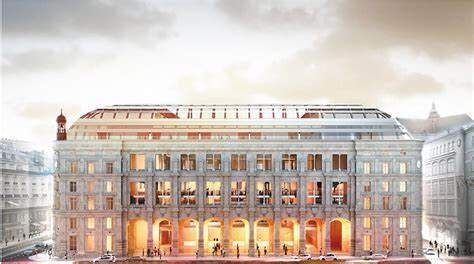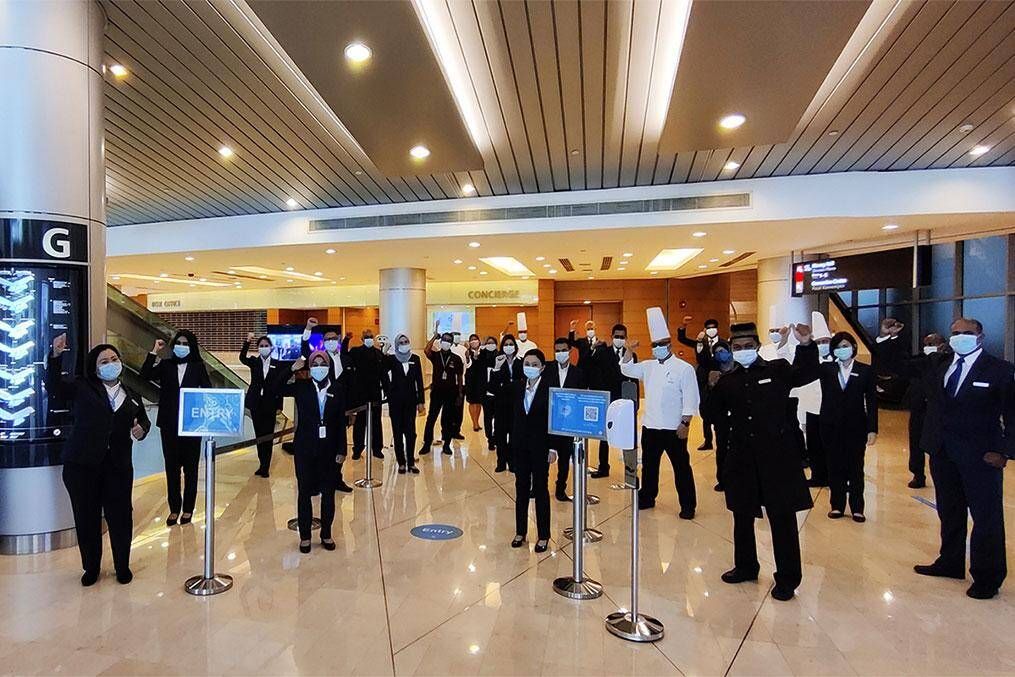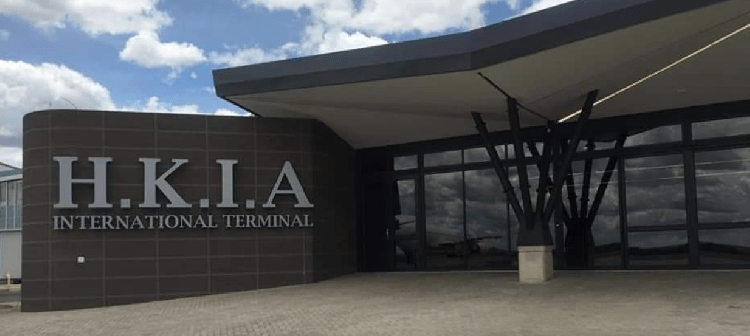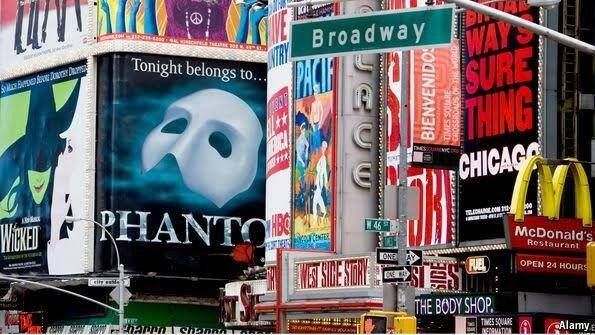It could have been the comeback summer for mega-events with real humans after a -year long hiatus. But neither the Euro football championships nor the Summer Olympics in Tokyo could keep their promises of holding safe games, unfortunately. The tournament’s final in London’s Wembley Stadium became a super-spreader amid 60,000 football aficionados, triggering a surge in the spread of the delta variant in the UK.
And Nippon saw despite a global sports spectacle sans fans a rebound of new COVID-19 infections too. Other major international events like the World Economic Forum (WEF) in Davos or the Paris air show had to be cancelled in 2021. By March 2020, the events industry had already lost $16.5bn, according to UFI, the Global Association of the Exhibition Industry, and the global tourism industry witness a fall of around 74% in international tourist arrival during the pandemic.
Good-bye zoom calls, hello conferences!
However these setbacks do not discourage the big shots of the global MICE (Meetings, Incentives, Conferences & Exhibitions) industry from going ahead with their very own plans in the coming months. Researchfive.com has reported the global MICE industry is anticipated to hit U$1,619.3 billion in the 2021–2028 period, growing from $1,007.2 billion in 2020 and representing a healthy 5.9% per year growth rate. Examples of upcoming events around the corner are:
- The six month World Expo in Dubai will kick off on October 1st after the event had to be postponed last year due to the pandemic. Lasting until April 30 2022, Expo Dubai (slogan: Connecting Minds, Creating the Future”) expects 25 million visitors to the United Arab Emirates (UAE). But Dr. Nasser Saïdi, a leading Dubai-based economist has judged this projection as “ somewhat too optimistic” amid ongoing travel restrictions globally and prevailing uncertainty among travellers.
- The global real state congress MIPM in Cannes has held its first post-pandemic gathering of property experts and architecture industry in early September.
- Under the slogan “Reconnect and Rebuild” the international air transport body IATA invites industry pundit and delegates to the Global Airport, Passenger & Accessibility Symposium to Prague, Czech Republic from 15 – 18 November.
- The World Travel Market (WTM) in London hopes to inject to the global tourism industry a booster shot by hosting the hotel chains, airliners, and tour operators, and country pavilions from 1-3 November at ExCeL Centre London.
Keep it clean
All events have one thing in common: they hope to bank on the FOMO (fear of missing out) effect. In order to keep events safe and sound, several measures have to be implemented and monitored:
- Functioning electronic devices which guarantee a smooth entry for delegates with the required QR code to proof they are tested negatively or vaccinated (in France even dining in a café or restaurant currently requires the QR code).
- Obligation to wear a mask which covers mouth and nose at all times.
- Placing of hand sanitizers at entry and exit points as well at every booth, seating or stage.
- Installation of thermal cameras at arrival points to check the temperature of visitors before entry to the site.
- Physical distancing measures. At least 1 meter or better 1.5 meters of distance shall be kept between visitors and delegates encouraged by markings on the floor and by appropriate seating schemes. These distancing rules shall be monitored by security personnel.
- Limiting the numbers of visitors per day by implementing a pre-registration scheme available on smart phones.
- Assurance of appropriate medical and emergency facilities onsite.
- Strict control of health pass or vaccination status, e. g. in France only visitors with a negative antigenic test or proof a double vaccination with an approved dose by Pfizer-BioNTech, Moderna, Astra-Zeneca, or Johnson and Johnson (vaccinations by Sputnik or Sinopharm are not accepted in France or any other EU country)
- Strict distancing of chairs and tables at kiosks, coffee shops, or restaurants onsite.
Aside from these relatively known (and hopefully respected) measures, other initiatives are supportive to keep the spread of the tenacious Sars-COV-2 virus too. These implementations include the technological support in keeping the pandemic at bay.
- Contactless payment terminals at entry gates, eateries, and booths (in case instant product sales are possible), and for food delivery boys and girls who walk around and sell drinks and sandwiches.
- A dense cleaning scheme which ensures that door handles, handrails, and buttons are disinfected on a regular basis.
- Automatic door opening systems shall be used in order to limit the need to open doors by hand.
- Regular cleaning of eateries and hygienic facilities at the MICE venue.
While these additional instruments translate into a higher cost base for arenas and event managers, they are the grease towards a step by step comeback of the MICE industry. Word of mouth by happy delegates will raise the reputation of a congress or cultural happening and ultimately lead to more delegates, sponsors, business partners in the post-pandemic era.
Uphill struggle
Michael Rennschmied, CEO of global conference organizer coliseum-online.com, which does both virtual and physical conferences, said that he expects events in the late 2021 and early 2022 to benefit mostly from their domestic markets due to ongoing travel restrictions. Example: the UAE remains on the UK’s amber list of countries which means that a visitor from London to the Expo Dubai can visit the event but he or she must quarantine upon return for seven days which makes the trip rather unattractive.
“If you want a high number of delegates (if permitted) you need to intensively source the local market (same country),” Rennschmied told Nets Switzerland. He added: “The era for online events is not over yet, but in 2022 everyone should go back to live events. As of now, there are too many uncertainties in relation to travel restrictions and quarantine requirements. Events work more on a local basis at the moment and on a lower scale than pre-pandemic.” In fact, Event organizers reported that 23.6% of their events in 2021 will include a virtual component and will be smaller local events. They will have less than 25 attendees who do not need to travel by air or stay in hotel rooms, according to AMEX.
The World Tourism Organization has found that of the total 10 billion pre-pandemic travels, around 14% accounted for business travel. Bearing in mind that business travelling is about “the art of the deal” which creates investments, jobs, and opportunities, the imminent rebound of the MICE industry can function like a nudge effect for the world economy after Covid-19.




















